Communicating Why CSR is Every Leader’s Business
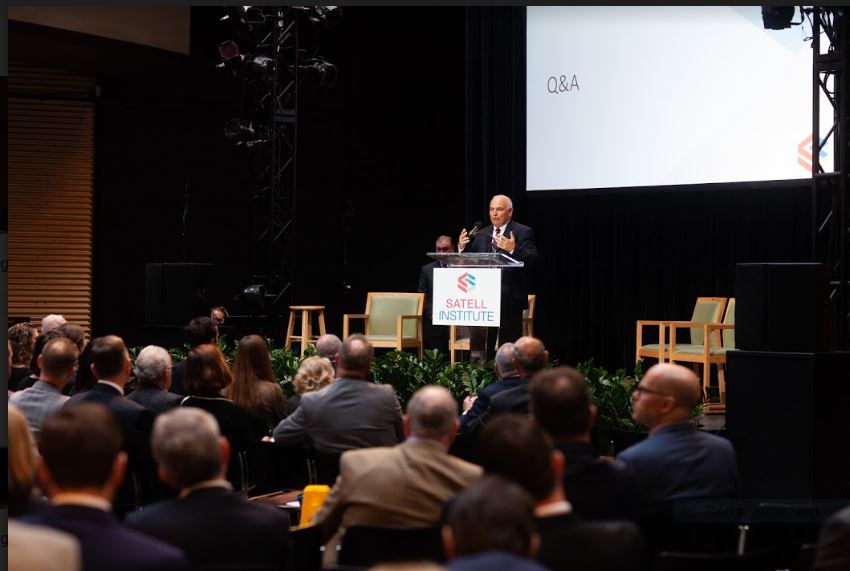
Strong values and thinking long term help drive success. This is a core tenet of the Satell Institute. SI stands for community building — business and nonprofits partnering to serve the greater good. Business provides the quantity of life—wealth and job creation. Nonprofits—”Heroes” provide the quality of life solutions to human issues and human development. Community trust is earned by demonstrating these strong values.
Sharing Priorities and Successful Funding Strategies at the Nonprofit-Business Leadership Summit
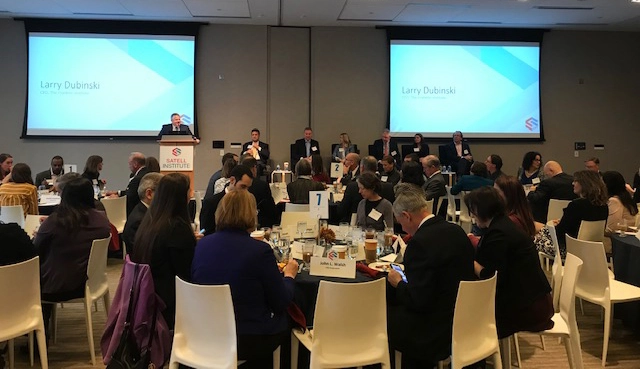
Over 100 top leaders with 76 prominent nonprofit organizations met to share both success stories and challenges on how to attract corporate financial supporters from a group of highly philanthropic company leaders at the first-ever Satell Institute Nonprofit-Business Leadership Summit on November 14, 2019.
New Member Benefit for Nonprofit Affiliates Leadership
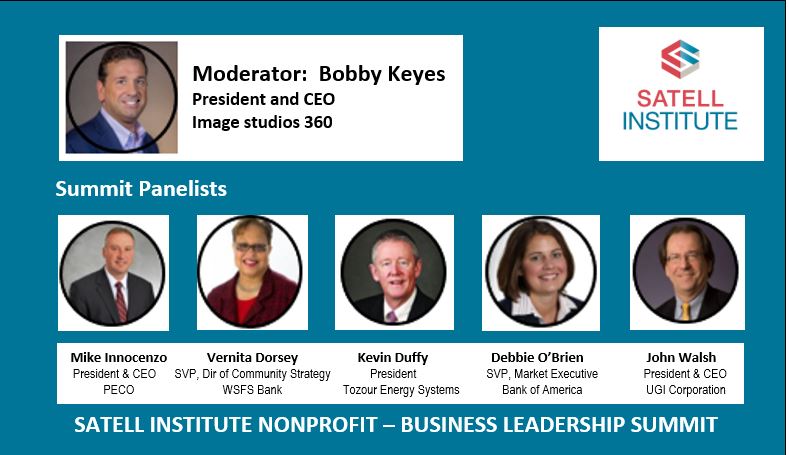
Successful business-nonprofit partnerships greatly benefit all community stakeholders – those who live and work there including employees, vendors, shareholders and their families. With this in mind, the institute announces its inaugural Nonprofit-Business Leadership Summit.
Record Registration for the Satell Institute Private CEO Impact Conference
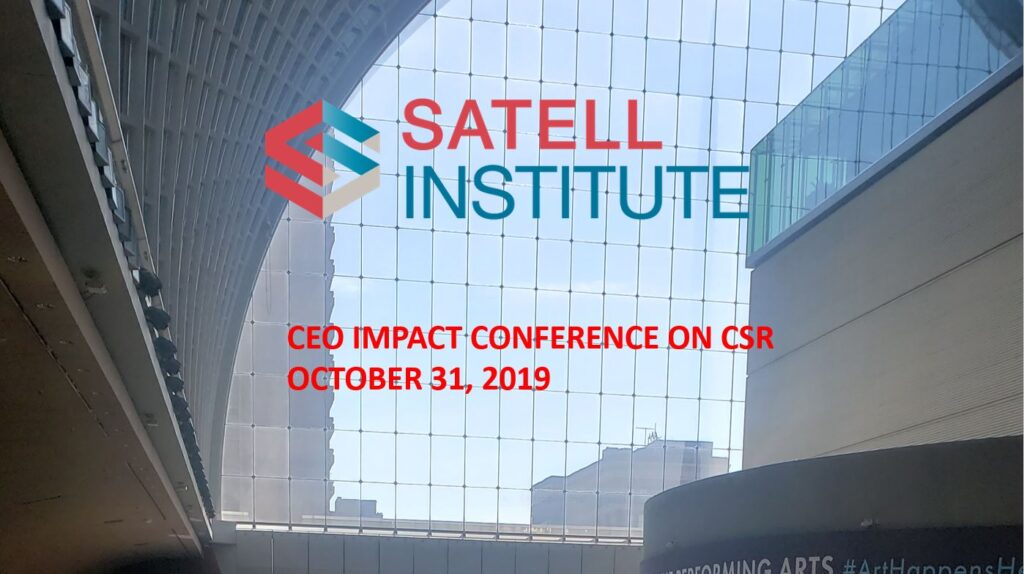
In one week, on October 31 at the Kimmel Center in Philadelphia, a record number of about 172 CEOs in the region will gather for the invitation-only CEO Conference on Why Business Growth Leaders Value CSR. The Institute is proud to convene this impressive group for a morning dedicated to Corporate Social Responsibility (CSR).
Importance of Purpose to Business and CSR

Last week, Forbes Business Magazine Leadership section focused on PURPOSE—a big buzzword right now (in an article by David Hessekiel). But it’s more than a buzzword, as increasingly it’s becoming a recognized vital business strategic need by successful companies of reputation. The Forbes article lauded a new book, The Purpose Advantage, by Jeff Fromm.
The Satell Institute CEO Impact Conference Fall 2019

A gathering of top CEOs dedicated to improving Corporate Social Responsibility (CSR) will attend the Satell Institute’s fourth private, by invitation only, CEO Conference on CSR scheduled for Thursday, October 31st at Philadelphia’s Kimmel Center.
The keynote speaker will be the dynamic CEO of Nutrisystem, Dawn Zier, now also the President & COO of Tivity (Nasdaq TVTY).
Leading CEOs Across the Country Signed a Statement that Mirrors What the Satell Institute Initiated, Advocates, and Quietly Financially Leads Concerning CSR

On August 20, 2019 the Business Roundtable, a group formed by the CEOs of America’s biggest companies to promote business interests, made a dramatic announcement. In its Statement on the Purpose of a Corporation signed by 181 of its 192 members, the Roundtable announced that it is shifting its purpose to include all its stakeholders: employees, customers, suppliers, communities in the broader society, as well as shareholders.
Why Nonprofits are “Heroes of our Society”

They improve the human condition in so many important ways that benefit business and the community. They seek solutions to the toughest human problems, frequently creating solutions the market or government can’t. And they work across the broad spectrum of global needs and wants, impacting all humans in some way.
The Meaning and Benefits to Society of Economic Liberty and Economic Freedom

Economic liberty is the freedom to purchase, trade and consume goods and services without the use of force, fraud or theft.
The Wall Street Journal recently published an article “When the Market Meets Morality” telling the positive story of Father Sirico, a parish priest preaching the virtues of economic freedom and why such free enterprise concepts benefit his parish of working-class people.
Why Corporate Social Responsibility works for companies and the community
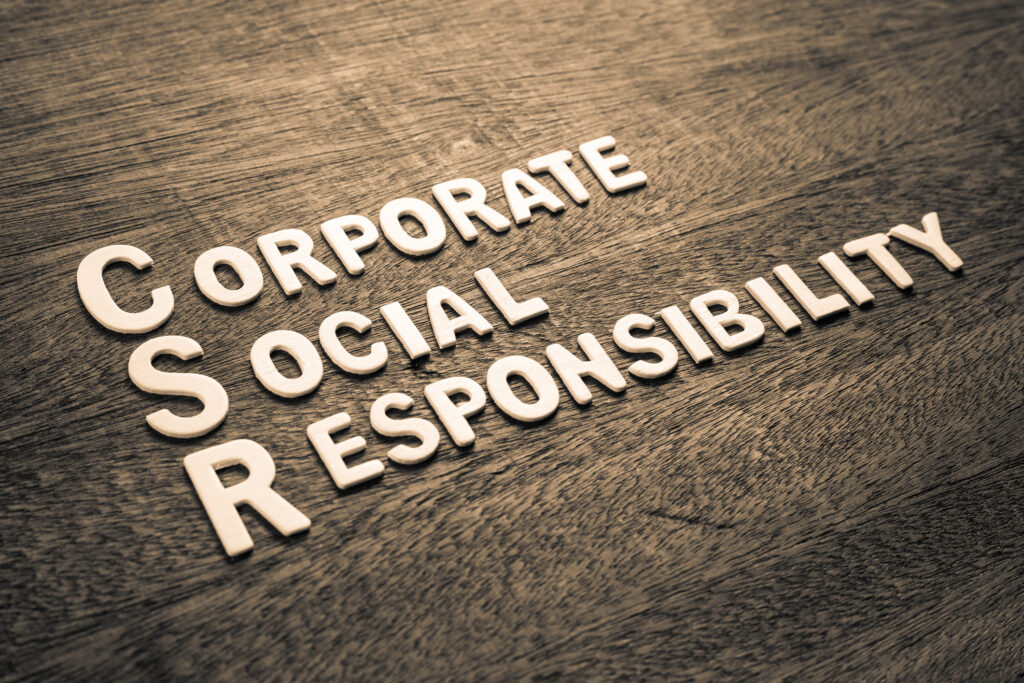
Entrepreneurs and entrepreneurial companies as well as professional organizations in a free market environment are motivated to solve problems. They do this by seeking to improve products, services and processes that are attractive to customers or employees or business performance or any combination. Interestingly, of the present Fortune 500 companies, only 58 were on the list in 1955. That’s because of innovation and “creative disruption” that continually rejuvenates the economy.

